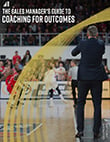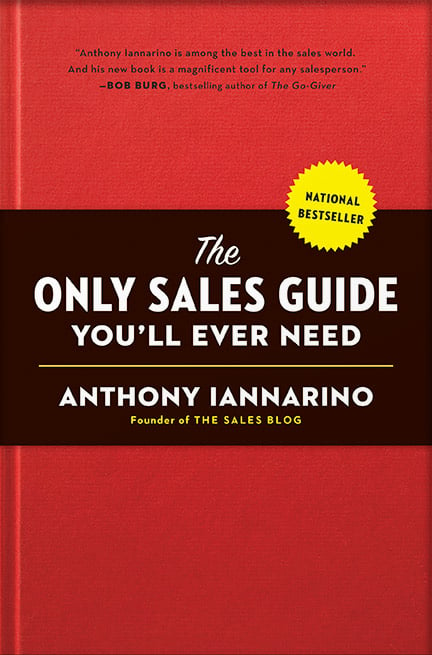The Gist:
- Some people tend to over-commit and find themselves overwhelmed.
- An automatic “yes” is not better than an automatic “no.”
- Space on your calendar provides you flexibility, allowing you to say “yes” when something is worth your time and attention.
It’s easy to say “why not?” when you are offered what feels like an opportunity to do something interesting or to contribute to some initiative, especially when it will mean you are helping others. Time is your single, finite, non-renewable resource; it only feels like it renews because, so far, your experience has convinced you that there will always be a tomorrow. The sun will most certainly come out tomorrow, but one day, you will not be here to see it.
Most of our time and attention filters are so loose that far too many commitments creep into our lives and onto our calendars, crowding out our priorities and creating a debilitating sense of being overwhelmed. These flabby filters are part of the reason you feel like you never have enough time for what is most important.
If saying “yes” is your problem, then the word “no” is your solution.
Commitments and Being Over-Committed
Many of the things you say yes to have little or nothing to do with your goals, priorities, initiatives, and tasks. Because any single commitment isn’t likely to take enough of your time to be a real problem, the first one seems harmless, as do the second and the third. But as your tribble-like commitments proliferate over time, growing in number, in size, and in the amount of time they require, you will eventually find yourself over-committed and overwhelmed.
A commitment is a promise. Once you promise your help, you are obligated to devote the time and energy that it requires. Human beings are social animals, so you want a positive reputation, as someone others can trust to keep their commitments. To protect that reputation, and because time and energy are limited resources, you need to avoid taking on projects, initiatives, and tasks that you have no time for—even the interesting and seemingly important ones.


The Automatic No
The tightest possible time and attention filter is the automatic no. When asked to participate in some new initiative, you answer “no” without giving the request any thought or consideration. When someone requests that you join a project that is incredibly interesting to you, you thank them politely and decline the offer. When asked to contribute your time and attention, you kindly thank your requestor and ask them to forgive you for not being available.
It is difficult to say no when people invite you to participate in something, perhaps because you’re flattered to be asked or because you feel a need to be included or contribute. These very human needs feed your desire to answer with an automatic “yes.” But while an automatic yes might make you feel good, it’s a worse option than an automatic no.
The value in the automatic no is that it eliminates anything and everything that removes the time and attention you need to pursue your goals, your priorities, and your initiatives. The tighter your time and attention filters, the more certain you can use these fleeting resources on the very few things that deserve them.

One Carefully Considered Commitment
Over time, the automatic no saves you from a calendar and task list full of commitments that you must keep. It creates space on your calendar, making room for your priorities. It also leaves space for you to agree to some request that truly interests you, ideally one that is also in line with your priorities. You can use that space for a single, carefully considered commitment, one that makes it through the tightest of your filters, a commitment that would require you to say “no” if you were already over-committed.
The fact that something might be enjoyable doesn’t mean it should command your time. Neither does the fact that it’s important to the person asking for your commitment. In fact, if it’s not important to you, then the project manager is better off finding someone else who cares as deeply about the project as they do. Just because you can add value to someone’s project doesn’t in any way obligate you to say yes.
The automatic “no” means that any commitment has to be so valuable, so important, and so worthwhile that it can penetrate your filters. Because you have refused to commit to everything, you now have room to commit to something that is more valuable to you. Space in your schedule gives you options and some measure of autonomy, while over-committing yourself eliminates both.


Saying “No” to the Smallest of Things
Every day, the world continually pings you to commit your time to things that seem important or entertaining in the moment. Because there is a never-ending news cycle that demands not only your attention but your outrage, you should tighten up your attention filters to make certain very little bleeds through.
The emailed article or video from your Uncle Enrico is a request for you to commit eleven minutes to understand that the Earth is flat and that the Mars Rover is a CGI hoax because it’s impossible for anything to get past the Van Allen radiation belt. You love your uncle, but neither he nor all his YouTube videos will change your mind—and there’s no reason to inject yourself with his particular idea virus.
The more things of little value that you say no to, the more room you make for the few things that deserve a yes.
Do Good Work:
- What causes you to say “yes” to so many offers that you have no time left for your priorities?
- What commitments should you have refused to make when you were asked?
- How can you tighten up your filters so only very few, but very important, initiatives find their way onto your calendar?

Essential Reading!
Get my first book: The Only Sale Guide You'll Ever Need
"The USA Today bestseller by the star sales speaker and author of The Sales Blog that reveals how all salespeople can attain huge sales success through strategies backed by extensive research and experience."
Buy Now







.jpg?width=768&height=994&name=salescall-planner-ebook-v3-1-cover%20(1).jpg)


